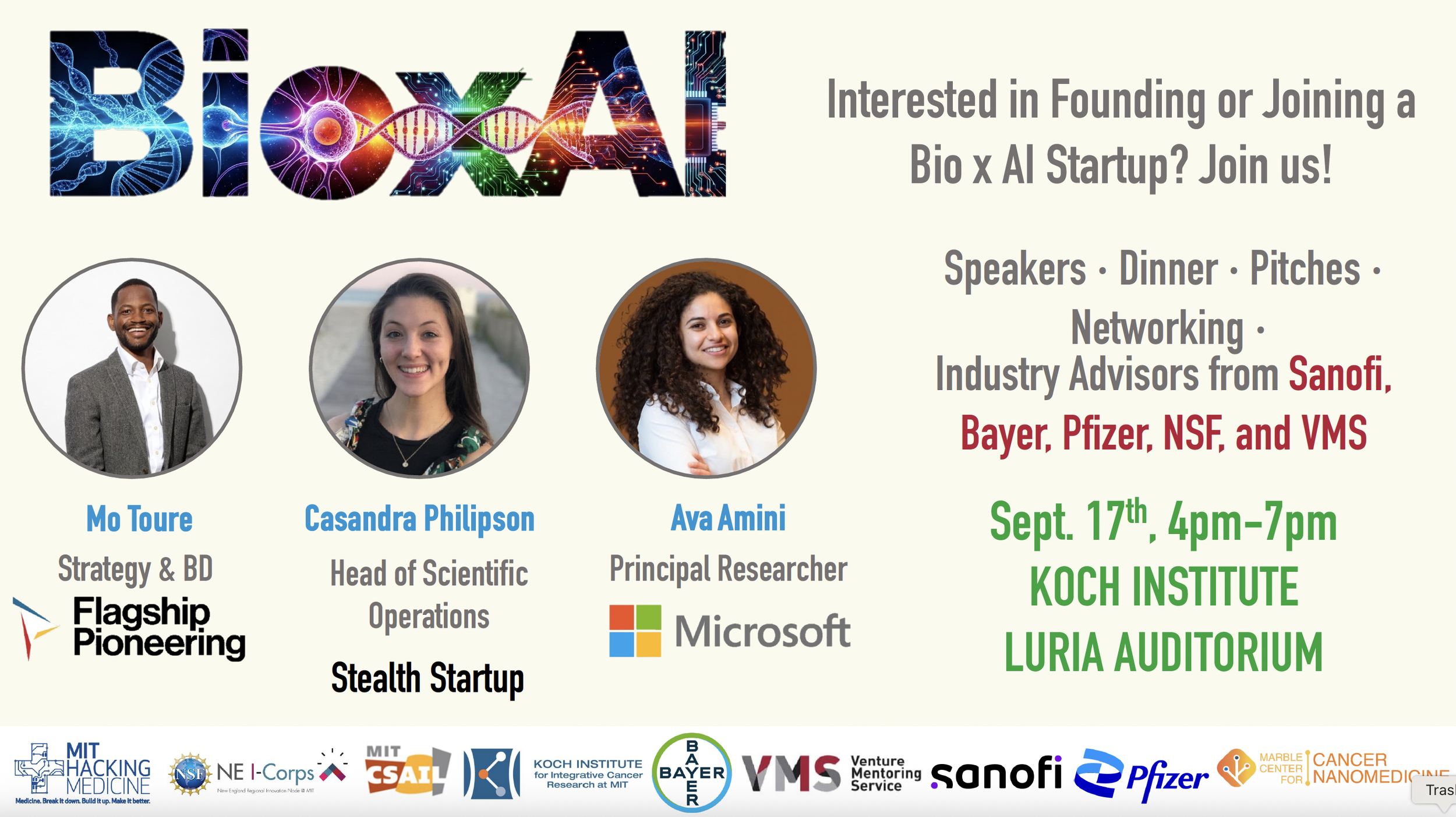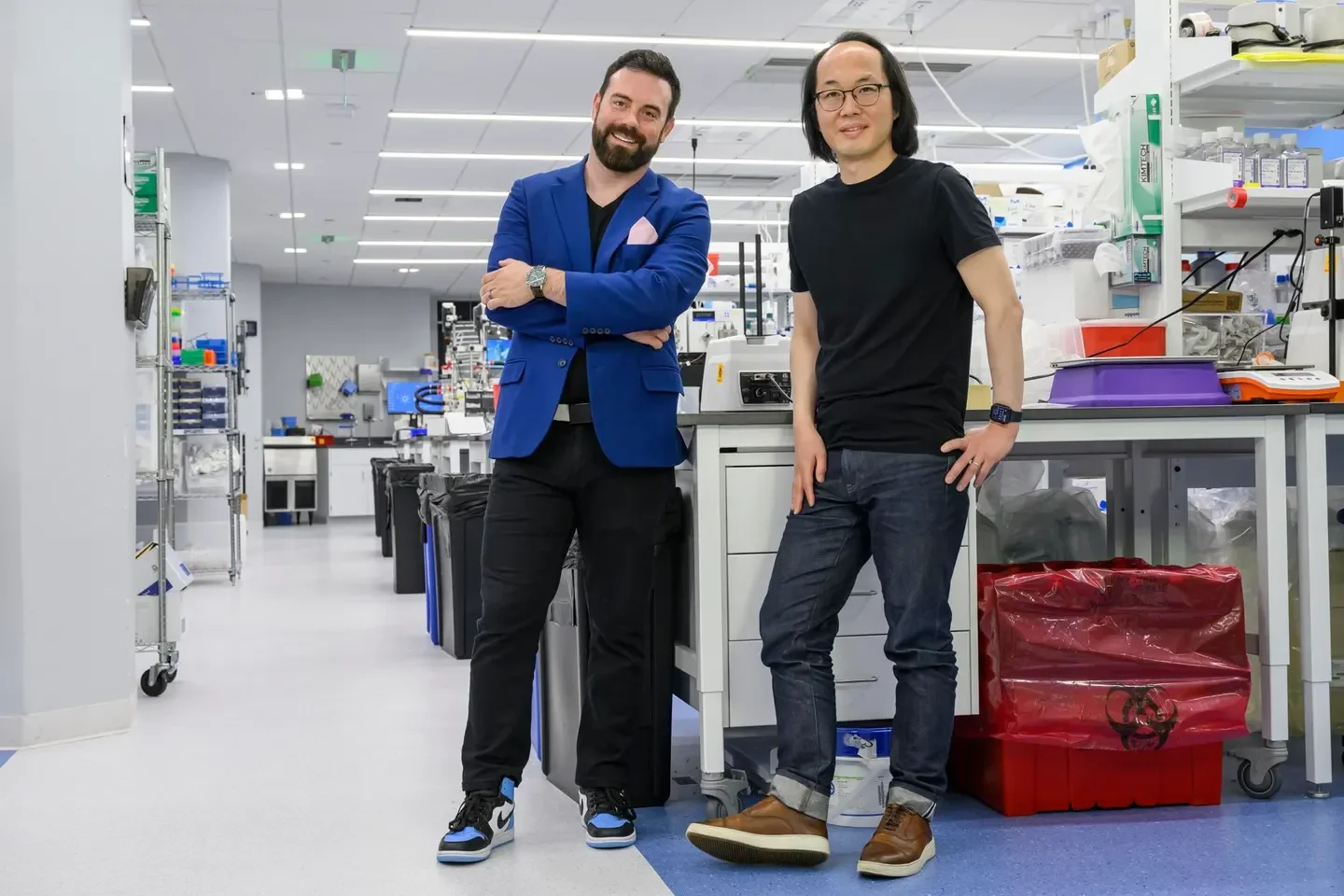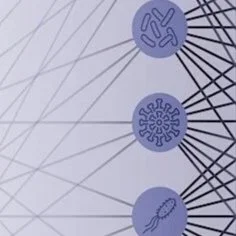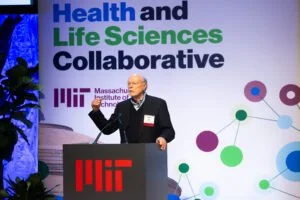September Bulletin
Issue 108
Community Notices
Marble Center Distinguished Seminar with Dr. David A. Edwards, September 15, 2025 (4-5pm, Luria Auditorium)
Modulating the controlled-release properties of airway mucus to treat respiratory diseases worsened by the breathing of a warming atmosphere
Bio: David A. Edwards is a biophysicist, founder, and CEO of Sensory Cloud Inc., a Boston-based startup company aimed at deactivation of mechano-sensitive channels for the treatment of respiratory disease. Prior to joining the company, David was on the faculty of Engineering & Applied Sciences at Harvard University (2002-2019), after having co-founded and sold his first startup company, Advanced Inhalation Research (AIR) to Alkermes. The AIR technology led to the FDA-approved Inbrija, inhaled L-Dopa for the treatment of Parkinson’s. While at Harvard, David pursued large porous particle technology underlying AIR to develop the first inhaled dry powder BCG for mucosal vaccination against tuberculosis (PNAS 2007, 2008). Since his 2004 PNAS publication, David’s research has increasingly focused on the respiratory health benefits of the inhalation of monovalent and divalent salt cations, leading to the startup of Sensory Cloud Inc. David founded other startups while at Harvard, including Foodberry, pioneering new food forms based on the natural model of the grape. David is currently Adjunct professor of medicine at Johns Hopkins University. He is a member of the US National Academy of Engineering, the French National Academy of Engineering (Académie des technologies), and the US National Academy of Inventors. For his work in the creative arts and nonfiction/fiction writing in French & English, David was made a Chevalier of arts and letters by the French Ministry of Culture in 2008.
BIO x AI Pitch Event at the Koch Institute
September 17, 2025 (4-7pm, Luria Auditorium)
Join fellow life science, computer science, engineering, and medical grad students and postdocs for a cross-school, cross discipline evening of BIO x AI community and informal pitch sharing hosted by MIT Hacking Medicine, the MIT Koch Institute, and the MIT Computer Science & Artificial Intelligence Lab.
Pitch your research or startup idea, meet with NSF and industry startup supporters, talk to founders about their lab to market journey, and learn about resources to help you get started and funded – or just come and pitch yourself as a candidate to join a team or serve as a co-founder. Then stay for the reception and dinner.
This is the event for you if you are interested in:
Learning about BIO x AI research to startup pathways
Pitching your BIO x AI idea or yourself (max 2 min)
Recruiting high impact team members or a co-founder
Joining an informal cross-discipline reception
Attendance is limited with a preference for those pitching their BIO x AI ideas, startups, team needs, or themselves.
News
How AI could speed the development of RNA vaccines and other RNA therapies
Using artificial intelligence, MIT researchers have come up with a new way to design nanoparticles that can more efficiently deliver RNA vaccines and other types of RNA therapies.
After training a machine-learning model to analyze thousands of existing delivery particles, the researchers used it to predict new materials that would work even better. The model also enabled the researchers to identify particles that would work well in different types of cells, and to discover ways to incorporate new types of materials into the particles.
“What we did was apply machine-learning tools to help accelerate the identification of optimal ingredient mixtures in lipid nanoparticles to help target a different cell type or help incorporate different materials, much faster than previously was possible,” says Giovanni Traverso, an associate professor of mechanical engineering at MIT, a gastroenterologist at Brigham and Women’s Hospital, and the senior author of the study.
This approach could dramatically speed the process of developing new RNA vaccines, as well as therapies that could be used to treat obesity, diabetes, and other metabolic disorders, the researchers say.
Alvin Chan, a former MIT postdoc who is now an assistant professor at Nanyang Technological University, and Ameya Kirtane, a former MIT postdoc who is now an assistant professor at the University of Minnesota, are the lead authors of the new open-access study, which appeared in Nature Nanotechnology. Read more…
MIT Spinout Strand Therapeutics Raises $153 Million To Make Cancerous Tumors Light Up
(Amy Feldman | Forbes) As a grad student in biological engineering at MIT, Jake Becraft had an idea that could change the way we treat cancer: What if genes could be turned on and off like light switches? Thinking it through a bit further, he envisioned “circuits” in which messenger RNA (mRNA), which carries the instructions for making proteins to cells, could be programmed to cause cancerous tumors to reveal themselves to the body’s immune system.
It was an idea at the cutting-edge of science, and when Becraft cofounded Cambridge, Mass.-based Strand Therapeutics to pursue it there was no guarantee of success. Now, eight years later, Strand seems on the cusp of it. Strand’s preliminary phase 1 clinical trial showed that its first programmable mRNA drug is not only safe, but can shrink tumors in cancer patients who had otherwise run out of treatment options.
Strand Therapeutics founders Jake Becraft (left) and Tasuku Kitada. (PHOTO BY JON CHOMITZ)
“It shocked even us,” Becraft told Forbes. “You hope something happens, but you don’t expect to see a huge response because these patients have already proven to have cancers so resistant to treatment.” With those results, Strand Therapeutics raised $153 million in new venture funding led by Swedish investment giant Kinnevik to build out its programmable mRNA therapeutics pipeline. Other investors include VC firms Iconiq and Playground Global; Regeneron Ventures, the venture arm of Regeneron Pharmaceuticals; and drugmakers Amgen and Eli Lilly. Read more…
New microparticles containing iron or iodine could be used to fortify food and beverages, to help fight malnutrition
(Anne Trafton | MIT News) Around the world, about 2 billion people suffer from iron deficiency, which can lead to anemia, impaired brain development in children, and increased infant mortality. To combat that problem, MIT researchers have come up with a new way to fortify foods and beverages with iron, using small crystalline particles. These particles, known as metal-organic frameworks, could be sprinkled on food, added to staple foods such as bread, or incorporated into drinks like coffee and tea.
Schematic illustration of nutrient metal-organic frameworks (NuMOF) as fortified supplements (MOF and nutrients are not to scale relative to cells). Source: Yang et al., Ferrous Nutritional Metal-Organic Framework as Food Fortificant. Matter (2025)
“We’re creating a solution that can be seamlessly added to staple foods across different regions,” says Ana Jaklenec, a principal investigator at MIT’s Koch Institute for Integrative Cancer Research. “What’s considered a staple in Senegal isn’t the same as in India or the U.S., so our goal was to develop something that doesn’t react with the food itself. That way, we don’t have to reformulate for every context — it can be incorporated into a wide range of foods and beverages without compromise.”
The particles designed in this study can also carry iodine, another critical nutrient. The particles could also be adapted to carry important minerals such as zinc, calcium, or magnesium. “We are very excited about this new approach and what we believe is a novel application of metal-organic frameworks to potentially advance nutrition, particularly in the developing world,” says Robert Langer, the David H. Koch Institute Professor at MIT and a member of the Koch Institute. Jaklenec and Langer are the senior authors of the study, which appears today in the journal Matter. MIT postdoc Xin Yang and Linzixuan (Rhoda) Zhang PhD ’24 are the lead authors of the paper. Read more…
Job opportunities
Technical Associate, Bathe Laboratory, Department of Biological Engineering at MIT. Assist investigators doing research at the cutting- edge of chemical synthesis, materials, therapeutic, and vaccine research using synthetic nucleic acids. Primary responsibilities will include but are not limited to DNA and RNA synthesis and purification using automated solid-phase synthesis and enzymatic production; organic chemical synthesis; click chemistry and other standard covalent chemistries for nucleic acids as well as peptides and proteins; oligonucleotide-antibody conjugation and purification; gel electrophoresis; purification plus quantitative analysis of nucleic acids and their products using centrifugation, PCR and qPCR, dialysis, HPLC, PAGE, agarose gel electrophoresis, and analytical mass spectrometry; lab management and supplies coordination, including assisting researchers with routine protocols, ensuring compliance with established lab standards; managing lab safety; serving as the environmental health and safety representative for the lab; ensuring proper maintenance of laboratory equipment; and ordering and maintaining lab supplies and reagents, including glassware.
Winter/Spring Co-op, Oncology Research, Sanofi. The Immunomodulation & Cell Reprogramming cluster within Sanofi Oncology is seeking a highly motivated co-op student. The successful candidate will work in a Cambridge MA state of the art facility within a multi-disciplinary team. The candidate will learn and utilize cutting-edge technologies to impact existing portfolio. The candidate will use molecular, cellular, and biochemical techniques to interrogate novel cancer therapeutics in human cancer models with an aim to bring the best new therapies to the correct patients. Applicants must be currently enrolled and pursuing a bachelor's degree in biology, biochemistry, molecular biology, cellular biology, chemistry, or related field at an accredited college or university with the expectation that you will complete your current degree by the Spring of 2029.
Funding opportunities
| Burroughs Wellcome Fund: Career Awards at the Scientific Interface - PostDoc | September 2, 2025 | Koch Institute Bridge Project Call for Proposals | October 14, 2025 |






